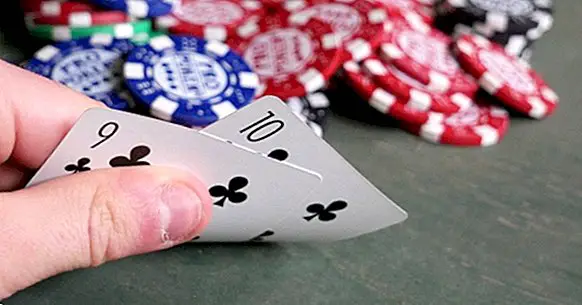Addictions without substances: compulsive behavior without control
We are going to talk about four behaviors of the human being that, when they go out of control, can be constituted in true addiction problems even though technically they are not substances .
Gambling, a game that is not game
Linked to enjoyment and recreation, bingo or casino can provide all the necessary condiments for an unforgettable night: good food, music, drinks, fun. As well It can be unforgettable if you can not stop playing If the salary is "reversed", money is demanded and owed, the automobile is sold, among other unimaginable things ...
We will talk about gambling if the play gets out of hand, it becomes compulsive, uncontrolled, until reaching desperate instances where deterioration not only appear from the economic point of view , if not at family, work, personal level. It is one of the most common substance-free addictions in Western countries.
Every excuse is valid to play again
If you win, the motivation invades and you will play again to increase what won . "I'm lucky today." If it is lost, it will be played again to recover the lost, to lift the mood, or to try to get rid of the negative consequences of having lost. "If I recover the lost, nobody will know what I lost, they will not even know that I came."
For the closest environment, to notice the problem, bingo becomes a place forbidden for the gambler, which will involve him having to hide it every time he attends, lie or find excuses to go to bingo.
It is always night
The architecture of the bingo, without windows and strategically thought, makes it impossible to discover when it stops being at night and begins to dawn, which facilitates the compulsion and the lack of limits. The loss of the notion of time is something key in the addiction to the game . As well as the false belief that a gambler can choose when to go to bingo and when to leave, as if he could handle it.
If there is addiction, it will be very difficult to control the frequency and duration of the bingo stay. Therefore, it is a behavior to which we must pay close attention. If the game ceases to be pleasant and begins to be compulsive, necessary and problematic, it is no longer a game.
Addictions to people
Addiction to a person, or also known as codependence It can be as problematic as other addictions. It can produce isolation, family, social, labor deterioration, low self-esteem, and even depression and death. Feel that you live for and for the other, that the reason of your life is that person, that if it is nothing, it makes sense. Being dependent on another person cancels one's own abilities by feeling that one can not live or achieve anything in life.
Self-esteem is governed by what others express about oneself. They think they deserve few things or nothing, they prioritize the other and can do what they do not want to please or not lose the other person.
The relationship with the dependent person goes back and forth, where the return to the bond is what prevails . The codependents return again and again, over the years, as if the sick relationship was stronger than them, where personal relationships are set aside and there are always opportunities to get back together
Living to work, work addiction
Something as necessary as rewarding and organizer of personality as work is, can become a problem. This will happen when a person spends most of the hours of the day, and sometimes at night, on labor issues, not allowing other activities or rest .
Several are the causal factors of an addiction to work: excessive self-imposed, low self-esteem, feeling of inferiority, obsession, pathological ambition. And the consequences will also be varied. As in any addiction, there will be consequences at the level of health, family and sociability : physical exhaustion, stress, anxiety; isolation, discussions, claims, pressures.
What does the buyer buy? Compulsive consumerism
Today, shopping and consumerism are part of our Western society, they are almost necessary to live. We eat meals, clothes, appliances, entertainment, etc. But when buying becomes uncontrolled and compulsive behavior we are talking about something else.
When buying calm, relieves or discharges, we must ask ourselves what calms us. How does it take us away? Definitely, What are we avoiding when we buy compulsively?
Spending large sums of money, far from generating the reward for acquiring the purchased, it can generate impotence, anguish and restlessness . It can lead to debt and to continue buying.The purchase is not happy, it is not a moment of pleasure, or it is, but then it is followed by a feeling of emptiness, frustration because the material purchased does not completely fill or remove the unpleasantness that is doing us wrong. This, which is prior to the purchase, is what we have to disclose, because the purchase itself is not bad, the bad thing is that it is compulsive and as a means to cover or calm some other need.
Retaking the title of this segment, the buyer compulsively buys relief, evasion, momentary tranquility. And, depending on the case, you can buy a place in the family, a corresponded love, a sense of success and prestige; buy self-esteem, buy feel valuable and important. The metaphor here is, when in the real thing I do not get something or it frustrates me part of the reality that I live or the place that I occupy in society, in my head buying replaces what is not material that I feel does not have . And it relieves, because when I buy "I forget" what is causing me so much discomfort.
We insist that buying has nothing wrong and is part of our way of life. It will be a problem if the need to buy something is systematically imposed. Life is organized according to purchase, all the time and if the purchase can not be carried out, it invades the anguish and frustration.



















